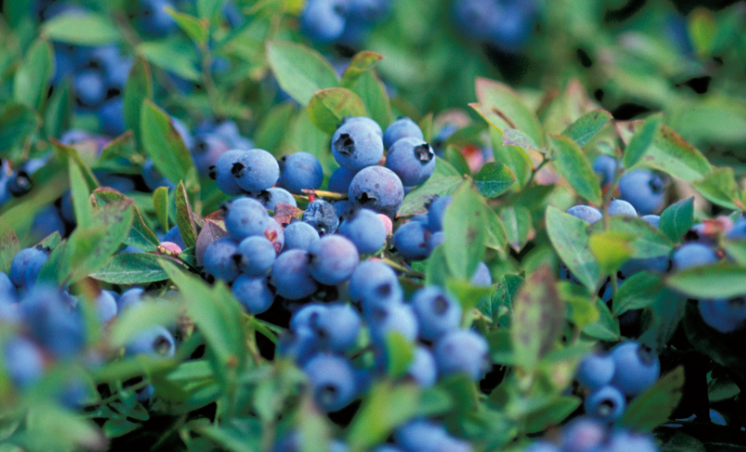Top Scientists Gather to Discuss Wild Blueberry Health Research: Summit Reveals Promising Studies in Brain and Cell Health
Researchers met in Maine to continue efforts to understand how Wild Blueberries prevent and/or forestall age-related diseases. Results of clinical trials shared at the 11th annual Wild Blueberries Health Research Summit revealed implications for brain health, investigations into antioxidant effects at the cellular level, and effects of blueberries on insulin sensitivity, markers of oxidative stress, and inflammation and cognitive performance.Portland, Maine (PRWEB) September 17, 2008 — Fourteen researchers from hospitals, universities and research groups around the U.S. and Canada met to discuss Wild Blueberry health research at the Wild Blueberry Health Research Summit in Bar Harbor, Maine. The 11th annual meeting took place in August and focused on the results of clinical trials that have implications for brain and cellular health, as well as potential benefits on satiety, and insulin sensitivity.
Known as the “Bar Harbor Group,” the Wild Blueberry Health Research Summit is comprised of researchers active in the fields of neuroscience, aging, cardiovascular disease, cancer, eye health and other health-related areas. The Bar Harbor Group has met since 1998 to discuss current Wild Blueberry health research, and continue efforts to understand how Wild Blueberries prevent and/or forestall age-related diseases such as cancer, heart disease, Alzheimer’s and macular degeneration.
New research revealed at the Health Research Summit included a study focused on Wild Blueberries and brain health conducted by Summit attendees Barbara Shukitt-Hale, Ph.D. and Jim Joseph, Ph.D. from the Neuroscience Lab at the USDA-ARS, Human Nutrition Research Center on Aging in Boston. The researchers investigated whether polyphenols in blueberries can reduce the effects of inflammation in the brain and improve cognitive performance. According to the report published in Nutritional Neuroscience (2008, Aug; 11(4): 172-82), “these results indicate that blueberry polyphenols attenuate learning impairments following neurotoxic insult and exert anti-inflammatory actions, perhaps via alteration of gene expression.”
Also during the two-day Summit, Cornell University scientist Rui Hai Liu, Ph.D. discussed results of a forthcoming study which looked at how commonly available fruits measure on a new antioxidant testing assay. This advanced CAA measure provides scientists with valuable insight into how antioxidant compounds potentially react in the body. In a 2007 study in the Journal of Agricultural and Food Chemistry, Liu compared antioxidant activity at the cellular level and found that Wild Blueberries outperformed cranberries, apples and both red and green grapes. (Journal of Agricultural and Food Chemistry, 2007; 55(22), 8896-8907)
In the years since the Health Research Summit began, research interest in Wild Blueberries has grown steadily, while new areas of investigation are opening up, including childhood obesity and the impact of children’s diets in the prevention of disease as well as longevity. Investigations are underway looking at the effect of blueberry-enhanced diets on both oxidative stress and inflammation. “There’s no question that research into the role of Wild Blueberries has intensified,” said Susan Davis, MS, RD, nutrition advisor to the Wild Blueberry Association of North America. “The ways in which Wild Blueberries can promote health are only just being uncovered. For instance, in addition to fighting oxidative stress, we now believe blueberries have powerful anti-inflammatory properties. There are many areas of health that are being investigated making this an exciting time for Wild Blueberry health research.”
Ongoing studies in inflammation include a clinical trial being conducted at Louisiana State University, which examines the effect of blueberries in the diet on insulin sensitivity, markers of oxidative stress, and inflammation and cognitive performance. Also reported on at the Summit was a pilot study from the University of Cincinnati School of Medicine, which focuses on how subjects responded to the addition of Wild Blueberry juice to their diet. Initial results show a beneficial effect in terms of improvements in cued recall as well as reduction of depression symptoms, a common association with mild to severe cognitive impairment. Ongoing clinical trials also include an investigation by the University of Maine into the potential effect of Wild Blueberry-enhanced diets on satiety.
About Wild Blueberry Association of North America
The Wild Blueberry Association of North America is a trade association of growers and processors of Wild Blueberries from Maine and Canada, dedicated to bringing the Wild Blueberry health story and unique Wild Advantages to consumers and the trade worldwide.
Contact:
Sue Till, Marketing Director
Swardlick Marketing Group
7 Custom House Street
Portland, Maine 04101
207.775.4100 tel
207.775.5668 fax

